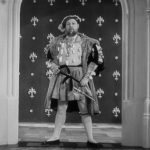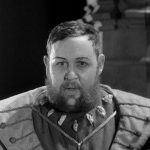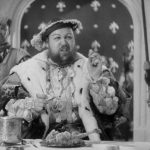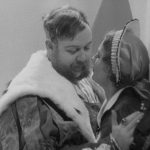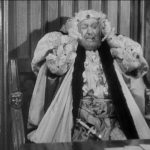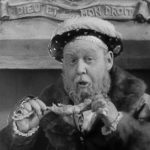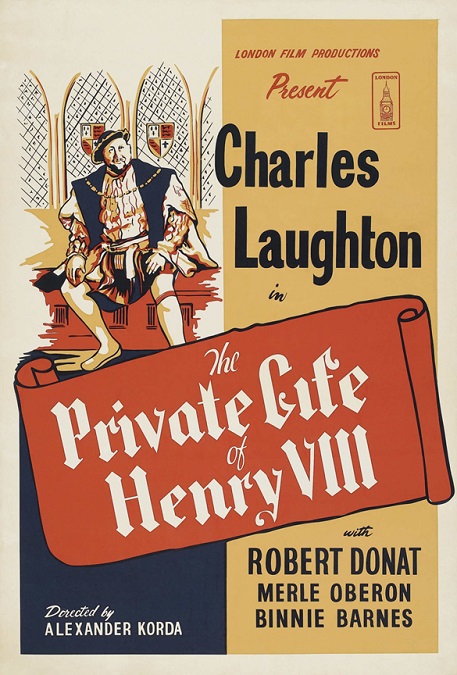
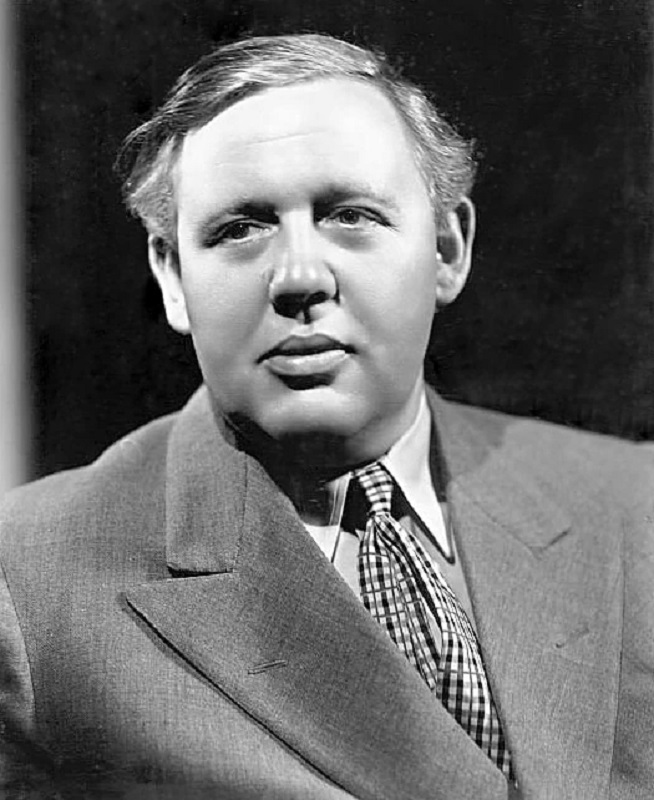

1932-33 – Charles Laughton
The Private Life of Henry VIII
Charles Laughton was really one of the greatest actors of his day. Playing a part in an epic film that spans years, so much so that he has to use makeup effects to give him the appearance of age, is not easy, but Laughton pulled it off with what seemed like ease and skill. It was impressive, but was a trifle when compared with the more dramatic demands of the role.
But playing age is not only accomplished through the art of makeup. It is also done through the voice, the movements, the posture, the mannerisms, and the facial expressions. In Henry’s early manhood, Laughton strode into a room and planted himself with confidence and arrogance. There was a shrewdness in his eyes and command in his countenance. He stood with his knees straight and his hands on his hips. In his later years, he stood with a hunched back, and hobbled across the floor. His eyes held a lifetime of experiences, both good and bad. And there was a natural tiredness about him that only comes with the passage of years.
The character moved from joy to sorrow, from alertness to senility, from love to anger, all with a stark realism that is hard to find in many actors. He looked the part, and he acted it perfectly. This is not the first film, in which I’ve seen him act. I’ve seen other Oscar Nominated films like Mutiny on the Bounty, Les Miserables, and even the amusing comedy Ruggles of Redgap. Laughton has a practiced confidence on the screen that cannot be faked.
There were several scenes in this film that allowed Laughton to really show some genuine emotion. For example, the utter happiness he portrayed when he first looked on his son, the Prince, and telling him as a loving father how difficult it will be to rule as a king. But there was also the heartbreaking scene in which he learns of his beloved wife’s adultery. When he breaks down in tears and sobbing in the midst of his ministers and courtiers, the tears were real, and I felt myself tearing up a bit as well. Laughton really seemed to understand the character, and did a wonderful job of bringing Henry to life. Except when he unexpectedly broke the fourth wall at the end of the movie, but I’m going to blame that one on the director.
